|
It’s one of those nights. The kind of nights where my toddler does not want to go to bed and has made this abundantly clear by his squirms and whines and protests as I try to change his diaper and put on his pajamas. This post originally appeared on A Fine Parent. He doesn’t want to listen to Mommy. He’s tired of her telling him what to do. And frankly, I don’t blame him. Toddlers live in a world where they are constantly told “No,” what to do, and how to behave all day, every day. It shouldn’t come as a surprise that this would get tiring for them; resisting is often just an attempt to insert some independence! So what do I do? Instead of yelling and persisting full steam ahead, I take a pause and then pick up his little pajama top and try a different tactic. “Hmmm… does this go on your knee?” He stops and stares at me. “Nooo, does it go on your feet?” He starts to giggle. “Nope, not there. Hmm. Silly Mommy. Where does it go? I need your help!” Just like that, my toddler’s confidence has been raised a notch and he starts to help. He feels smart and in charge. And I, playing the fool, have him just where I want him. Why Do We Want to Boost Our Child’s Confidence? It’s easy to believe in the notion that we, the parents, are the ultimate authority figures and our children must be compliant little beings. While it is true that parents are in charge, we also want to make our children feel confident and their emotions validated. This is true for children of all ages, but it is especially important in the toddler years, when children begin to get a better understanding of who they are and what they can do. Along with that better understanding may come frustration. For toddlers, as compared to their older counterparts, frustration may feel like:
Boosting a child’s confidence has many benefits across an array of developmental areas, including:
When we reverse a child’s lower self-esteem and give them ways to feel confident, they are more likely to be cooperative to our requests. A more confident and cooperative child makes for a happier household! How Can We Boost Our Child’s Confidence? Clearly, boosting our child’s confidence has benefits that help set them up for success throughout the whole of their childhood. The question is–how exactly do we do that? Read on to explore the best ways to boosting confidence and therefore decreasing behaviors! #1: Play the Fool In his book, Happiest Toddler on the Block, Dr. Harvey Karp offers some suggestions on how to boost our toddler’s confidence, starting with playing the fool. Much like pretending to not know how to put my son’s pajamas on correctly, Dr. Karp recommends using this strategy 10-20 times a day, and ensures parents that within a week they will begin to see their toddlers automatically become more cooperative. I often play the fool with my toddler during the routine, everyday tasks that my son begrudgingly has to do. For example, during dinnertime when he is upset about being taken away from playtime, I play the fool. I can do this in a number of ways according to Karp:
‘Playing the fool’ also works wonders when fear is involved in something our child doesn’t want to do, such as going to the doctor or dentist. As soon as they realize they are “smarter” than these two professions, their confidence builds and cooperation becomes easier. Finally, ‘playing the fool’ can be an effective strategy when a toddler prefers one parent over the other in a situation. Normally, I am the one who puts my toddler to bed, but some nights my husband does it. My toddler used to protest and beg for me. Instead of giving in, we played the fool. I would tell my son that Daddy would be putting him to bed and that he would have to help Daddy with the bedtime routine because Daddy was silly and would mess it up. My husband, in on the act, would play this up and purposefully act as if he was going to mess it up. “I am going to put a new diaper on your head” or would pretend to sit on my son’s lap to read a bedtime book. My son soon learned that bedtime with Daddy wasn’t so bad. Afterall, he was smarter than Daddy when it came to the nighttime routine. Worried that ‘playing the fool” will make your toddler lose his respect for you or be bad if done too much? Dr. Karp says this: “Not at all. Your child knows you’re not really weak or a baby. You’re his ultimate hero. You’ll never lose his respect just because you goof with him a little bit. In fact, he’ll love you even more for it. Think of playing the boob as an ancient form of flattery (a fundamental tool of diplomacy). It’s like buttering up the king: ‘Oh, Your Lordship, you are soooooo strong!’” #2: Gossip About Your Child Yes, you heard that right! Go ahead and talk about your child in a way that guarantees they will overhear you talking about them, while pretending that you don’t even notice they are there. I’m talking about doing your best exaggerated whisper yell, hands cupped to your mouth, the most dramatic imitation of gossiping possible to whomever or whatever (Daddy, a stuffed animal, a toy) is nearby. But here is the catch. You are not not going to drone on about all the things they did wrong. You are going to reiterate what they did well by using concrete examples. “Psstttt, Teddy, guess what your boy did today? When Mr. Dinger went off, he went straight upstairs to get ready for bed without even crying!!! Can you believe that? Should we clap for him?” Dr. Karp suggests that gossiping green lights good behavior and can be an effective strategy to boost confidence, starting around 15-18 months. Why can this strategy be helpful? Well, think about how confidence works for us, as adults. What do we prefer more: Our significant other directly telling us that we are doing a good job or overhearing them bragging about it to someone else? I would bet that most people would choose the latter. Overhearing a positive remark that was not necessarily meant for our ears can often feel more authentic! Toddlers feel the same way. If it’s being whispered as a secret, Mommy must really mean it. It must be important and I should pay close attention. Gossiping fills up a toddler’s self-esteem cup. It’s hard to stay within the strict boundaries that so many adults set up. Overhearing all the things they did right makes them confident in themselves and more likely to continue doing those actions. #3: Give Responsibilities to Our Children According to Dr. Jazmine McCoy, who runs her popular site, The Mom Psychologist, 2-3 year-old toddlers are old enough to be given chores. She goes on to say that chores are a great way to teach our children responsibility and the value of contributing to the household. Toddlers this age love being helpful and doing chores helps them feel confident and important. In our household, our son has the responsibility of throwing things away in the trash and being in charge of his checklist. His nighttime routine hangs in our room and after he completes each item, he can go over to the checklist and check it off, which he so proudly does. When giving children chore responsibilities, make sure they are age appropriate so as to ensure that frustration doesn’t interfere! Read on for age-appropriate options: Ages 2-3:
All of these little ways throughout the day can boost a toddler’s self-esteem in no time and make for a happier home; one where a toddler can feel confident, capable, and cooperative. 4: Establish Connections With Your Children Dr. Laura Markham, author of Peaceful Parents, Happy Kids, recommends establishing emotional connections and strong bonds with your child at an early age. These connections lead to more resilient and confident kids later in life. What does this look like? Dr. Markham emphasizes the need for physical touch and sharing simple, intimate moments like laughing together, snuggling, kissing a boo-boo, discussing a hard decision, and spending time in nature. Strong bonds do not require elaborate thought and entertaining your child 24/7 but rather just being present in your child’s life. In our house, we do time-ins or as Dr. Markham refers to, “special time.” Our time-ins are planned or unplanned bits of time scattered throughout the day. They are usually 10-30 minutes of uninterrupted, technology-free time in which we simply spend time with our child by playing, talking, strolling, reading, or quietly observing our son. In a busy, distracted world it’s easy to always be on the go or checking a device; but by doing intentional time-ins we build those needed connections with our son and lose the guilt from when we do have to be on our phones or working on our computers. When we see that our son is particularly whiny or frustrated, we try to pause and do an unplanned quick time-in to fill up his emotional bank. Once that is full, he has the confidence to play on his own. Time-ins make for a happier home, less stressed parents, and confident children. The 2-Minute Action Plan As you take the next two minutes to reflect on your current parenting practices centered around boosting your child’s confidence, here are some questions to contemplate:
If you answered “yes” to any of these questions, you might want to consider some of the strategies above to boost your toddler’s confidence. The Ongoing Action Plan As you move forward in your parenting journey, consider trying out the strategies we just reviewed. It can be helpful to try one strategy at a time, while also tracking your child’s behavior- this process can aid in our understanding of what strategy works best in boosting our child’s confidence! You can try the following steps:
Interested in learning more, check out my parenting guide, Now What?
0 Comments
Running. Writing. Reading. Traveling. Scrapbooking. Yoga. Volunteering. Those were some of my many passions and hobbies in life that gave me great fulfillment prior to having a baby. I nourished each one of those on the regular. By the time my son was born, I was down to reading and doing something that might be called running (but was more like shuffling) from my List of Passions. Oh, and shoveling food down my face with one hand if that counts. As a new mom, I knew that life would be altered once I had a baby. I fully expected that I would have to give up some of the hobbies that I so enjoyed before, and I was okay with that. I threw myself into motherhood with all the zest and joy I had for my other passions. What I didn’t expect was the mental load. It made me bitter. It made me feel as if I was carrying the weight of this new baby all on my shoulders. Why were there so many decisions to make and why did I feel as if I were the one making them all? Mental load consumed my thoughts throughout the day and left me run ragged at night with little or no time for myself. I was floundering. After a few months in, I knew something had to change. I knew I had to reclaim my Unicorn Space. Lauren Barrett Writes is a participant in the Amazon Services LLC Associates Program, an affiliate advertising program. As an Amazon Associate, I earn from qualifying purchases. Read more about these links in my disclosure policy. What is your Unicorn Space?
|
|
|
|
But first, what is Fair Play? Fair Play is a book written by Eve Rodsky. The book also inspired a card game to play with your partner
Taken straight from Fair Play’s website:
Tired of being the “she-fault” parent responsible for all aspects of her busy household, Eve Rodsky counted up all the unpaid, invisible work she was doing for her family—and then sent that list to her husband, asking for things to change. His response was . . . underwhelming. Rodsky realized that simply identifying the issue of unequal labor on the home front wasn’t enough: She needed a solution to this universal problem. Her sanity, identity, career, and marriage depended on it.
The result is Fair Play: a time-and anxiety-saving system that offers couples a completely new way to divvy up domestic responsibilities. Rodsky interviewed more than five hundred men and women from all walks of life to figure out what the invisible work in a family actually entails and how to get it all done efficiently. With four easy-to-follow rules, 100 household tasks, and a figurative card game you play with your partner, Fair Play helps you prioritize what’s important to your family and who should take the lead on every chore from laundry to homework to dinner.
Fair Play made sense to me after reading it. Something clicked.
Maybe if James and I could physically see how many cards each of us held, we would realize all that the other did and work to make our household responsibilities fairer and alleviate some of my mental load.
I knew I had to give it a shot.
I liked how there were concrete rules:
I liked how there were different categories for the 100 household tasks:
I liked how Eve offered solutions to the 13 mistakes couples will make.
And I was pretty sure James would appreciate the overall efficiency of the game. Now, I just had to get him to play.
Taken straight from Fair Play’s website:
Tired of being the “she-fault” parent responsible for all aspects of her busy household, Eve Rodsky counted up all the unpaid, invisible work she was doing for her family—and then sent that list to her husband, asking for things to change. His response was . . . underwhelming. Rodsky realized that simply identifying the issue of unequal labor on the home front wasn’t enough: She needed a solution to this universal problem. Her sanity, identity, career, and marriage depended on it.
The result is Fair Play: a time-and anxiety-saving system that offers couples a completely new way to divvy up domestic responsibilities. Rodsky interviewed more than five hundred men and women from all walks of life to figure out what the invisible work in a family actually entails and how to get it all done efficiently. With four easy-to-follow rules, 100 household tasks, and a figurative card game you play with your partner, Fair Play helps you prioritize what’s important to your family and who should take the lead on every chore from laundry to homework to dinner.
Fair Play made sense to me after reading it. Something clicked.
Maybe if James and I could physically see how many cards each of us held, we would realize all that the other did and work to make our household responsibilities fairer and alleviate some of my mental load.
I knew I had to give it a shot.
I liked how there were concrete rules:
- All Time is created equal.
- Reclaim your right to be interesting.
- Start where you are now.
- Establish your values and standards.
I liked how there were different categories for the 100 household tasks:
- Home
- Out
- Caregiving
- Magic
- Wild
- Unicorn Space
I liked how Eve offered solutions to the 13 mistakes couples will make.
And I was pretty sure James would appreciate the overall efficiency of the game. Now, I just had to get him to play.
How We Did Fair Play?
I knew if I wanted to get James to play I couldn’t make Fair Play out to be a gigantic lecture or like I was out to get him.
So, I sent him an invitation inviting him to play and empathized that there would be food and drinks served. He thought that was cheesy but RSVPed that he would go and actually showed up to our living room after our son went to bed.
This is how we played.
1. We laid out all the cards and began taking out the ones that don’t apply to us right now. (i.e. taking care of a pet, helping with your child’s homework)
2. I handed out the remaining cards to what we currently do. This is something you don’t have to do, but I wanted James to see how many cards I actually had.
*Eve advises you to not keep score, but I felt obligated to let him know all the invisible work I do hehe*
3. Lay out the cards again. Now this time take turns picking out the Daily Grind cards.
Some cards have a small coffee cup listed next to them. That signifies Daily Grind. These are the responsibilities that most likely have to take place every day (dishes, making dinner, putting kids to bed).
One partner should not hold all the Daily Grind cards. They should be distributed fairly.
In our household, James is in charge of all things food, cooking, groceries, meal-prepping, and takeout. I am in charge of cleaning and putting Henry to bed most nights, waking him up in the morning, and handling his naps. It’s our preference.
4. Now, sort out the remaining cards. First, we started by preference and then we negotiated the cards we didn’t want.
Remember just because you have a card now, it doesn’t mean that you are stuck with it forever. You can resort every week or month.
And also remember that some cards can be Doubled-Up - when partners “share” one card.
5. Draw your Friendship, Self-Care, and Unicorn Space cards.
Each partner gets these cards and should be allotted time to nourish these cards. When you draw these cards, you should establish how often and when that will happen.
For example, my Unicorn Space is writing and blogging and James’ Unicorn Space is trading. Wednesday nights James handles the bedtime routine, so I can have extra time or sometimes James will take Henry to the grocery store with him.
6. Go over CPE.
CPE stands for conception, planning, and execution. This is very important.
It means that if you have a certain card, you are in charge of CPE.
For instance, if I have the card of Extracurricular and Packing/Unpacking (a card pairing that should go together), it is my responsibility to sign up/pay for my son’s swim lessons, mark it on the calendar, plan how I am getting him there, pack his bags, and unpack them when I get back.
James doesn’t have to do anything except ask how it went.
Another example, if James has the bedtime routine for the night, he is in charge of it all. The full CPE. I shouldn’t have to think about it at all.
Because we all know that women spend a great amount of time conceiving and planning something but yet our partners will take credit for the task if they execute it.
No, no. Not with Fair Play. If you have the card, you CPE it.
Of course, there are extreme circumstances where you have to break down CPE, but Eve advises against it.
7. Go over your Minimum Standard of Care.
Your partner won’t do things quite like you do it and vice versa, and that’s okay, but there needs to be a Minimum Standard of Care established.
For example, I am a little extra with the Bedtime Routine. Henry and I have our own thing. I shouldn’t expect James to do all that I do.
BUT, the Minimum Standard of Care in our household is that he has to at least brush his teeth, read a book, say prayers, and sing a song. And I need to be okay with that.
Establish a Minimum Standard of Care for anything you are concerned your partner won’t meet expectations and vice versa.
8. Make a list of who has what and play fairly.
Now, it’s time to play fairly. So far, it is working for us. We know our roles, and we have stuck with them.
9. Redraw when necessary.
We haven’t had to redraw, but I am sure we will soon now that summer is almost over, and teaching and coaching are starting soon. We are also moving, so some new roles will need to be established.
So, I sent him an invitation inviting him to play and empathized that there would be food and drinks served. He thought that was cheesy but RSVPed that he would go and actually showed up to our living room after our son went to bed.
This is how we played.
1. We laid out all the cards and began taking out the ones that don’t apply to us right now. (i.e. taking care of a pet, helping with your child’s homework)
2. I handed out the remaining cards to what we currently do. This is something you don’t have to do, but I wanted James to see how many cards I actually had.
*Eve advises you to not keep score, but I felt obligated to let him know all the invisible work I do hehe*
3. Lay out the cards again. Now this time take turns picking out the Daily Grind cards.
Some cards have a small coffee cup listed next to them. That signifies Daily Grind. These are the responsibilities that most likely have to take place every day (dishes, making dinner, putting kids to bed).
One partner should not hold all the Daily Grind cards. They should be distributed fairly.
In our household, James is in charge of all things food, cooking, groceries, meal-prepping, and takeout. I am in charge of cleaning and putting Henry to bed most nights, waking him up in the morning, and handling his naps. It’s our preference.
4. Now, sort out the remaining cards. First, we started by preference and then we negotiated the cards we didn’t want.
Remember just because you have a card now, it doesn’t mean that you are stuck with it forever. You can resort every week or month.
And also remember that some cards can be Doubled-Up - when partners “share” one card.
5. Draw your Friendship, Self-Care, and Unicorn Space cards.
Each partner gets these cards and should be allotted time to nourish these cards. When you draw these cards, you should establish how often and when that will happen.
For example, my Unicorn Space is writing and blogging and James’ Unicorn Space is trading. Wednesday nights James handles the bedtime routine, so I can have extra time or sometimes James will take Henry to the grocery store with him.
6. Go over CPE.
CPE stands for conception, planning, and execution. This is very important.
It means that if you have a certain card, you are in charge of CPE.
For instance, if I have the card of Extracurricular and Packing/Unpacking (a card pairing that should go together), it is my responsibility to sign up/pay for my son’s swim lessons, mark it on the calendar, plan how I am getting him there, pack his bags, and unpack them when I get back.
James doesn’t have to do anything except ask how it went.
Another example, if James has the bedtime routine for the night, he is in charge of it all. The full CPE. I shouldn’t have to think about it at all.
Because we all know that women spend a great amount of time conceiving and planning something but yet our partners will take credit for the task if they execute it.
No, no. Not with Fair Play. If you have the card, you CPE it.
Of course, there are extreme circumstances where you have to break down CPE, but Eve advises against it.
7. Go over your Minimum Standard of Care.
Your partner won’t do things quite like you do it and vice versa, and that’s okay, but there needs to be a Minimum Standard of Care established.
For example, I am a little extra with the Bedtime Routine. Henry and I have our own thing. I shouldn’t expect James to do all that I do.
BUT, the Minimum Standard of Care in our household is that he has to at least brush his teeth, read a book, say prayers, and sing a song. And I need to be okay with that.
Establish a Minimum Standard of Care for anything you are concerned your partner won’t meet expectations and vice versa.
8. Make a list of who has what and play fairly.
Now, it’s time to play fairly. So far, it is working for us. We know our roles, and we have stuck with them.
9. Redraw when necessary.
We haven’t had to redraw, but I am sure we will soon now that summer is almost over, and teaching and coaching are starting soon. We are also moving, so some new roles will need to be established.
Get out there and play!
Both James and I have been very happy with Fair Play. We each feel more valued and less stressed. My mental load has decreased, and I am relishing in my Unicorn Space.
Fair Play is something you need to play for life. It ultimately increases your communication as a couple and makes you feel like a team.
James and I even high-fived after playing. Something he doesn’t let me do a lot because he says I am too eager for it.
So you know Fair Play is a win!
Fair Play is something you need to play for life. It ultimately increases your communication as a couple and makes you feel like a team.
James and I even high-fived after playing. Something he doesn’t let me do a lot because he says I am too eager for it.
So you know Fair Play is a win!
|
Lauren Barrett was born in New Jersey, grew up in West Virginia, went to college in Pennsylvania, and now lives and works in North Carolina. She is a high school teacher of the Deaf and hard-of-hearing by day, a cross country coach by the afternoon, a writer by her son's nap times, and a full time mom to an amazing toddler. She loves her faith, running, visiting MLB stadiums with her husband, chocolate, scrapbooking, pretending she would actually do well on the Amazing Race, re-watching The Office, listening to Bobby Bones, and helping out all moms. She lives in North Carolina with her husband, James, and son, Henry.
|
|
|
|
|
Categories
All
Add One A Day 30 Day Challenge
Add One-A-Day 30 Day Challenge
Baby
Blogging
Life
Marriage
Mom
Parenting
Positive Parenting Discipline
Pregnancy
Raleigh
Running
Social Justice
Teacher
Toddler Eating
Travel
Vocabulary
Wedding
Writing
Proudly powered by Weebly


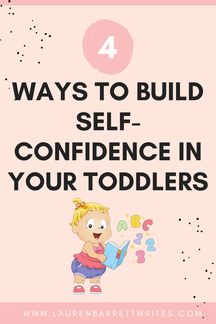

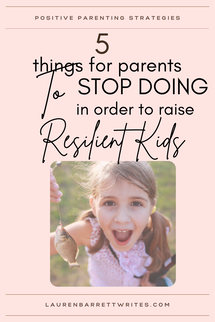
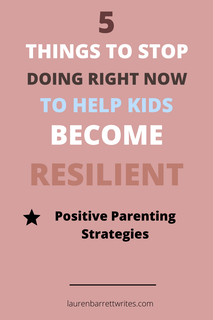
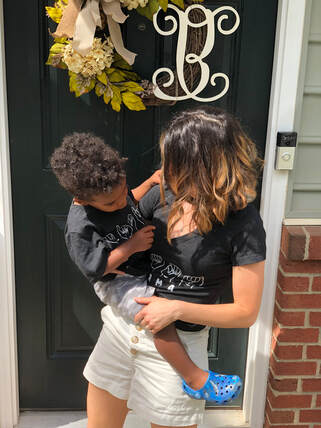



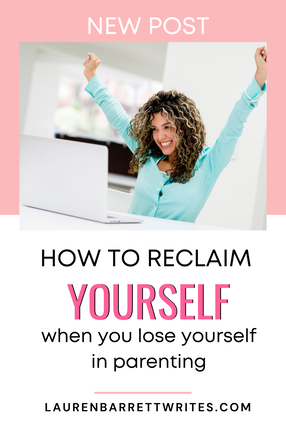



 RSS Feed
RSS Feed